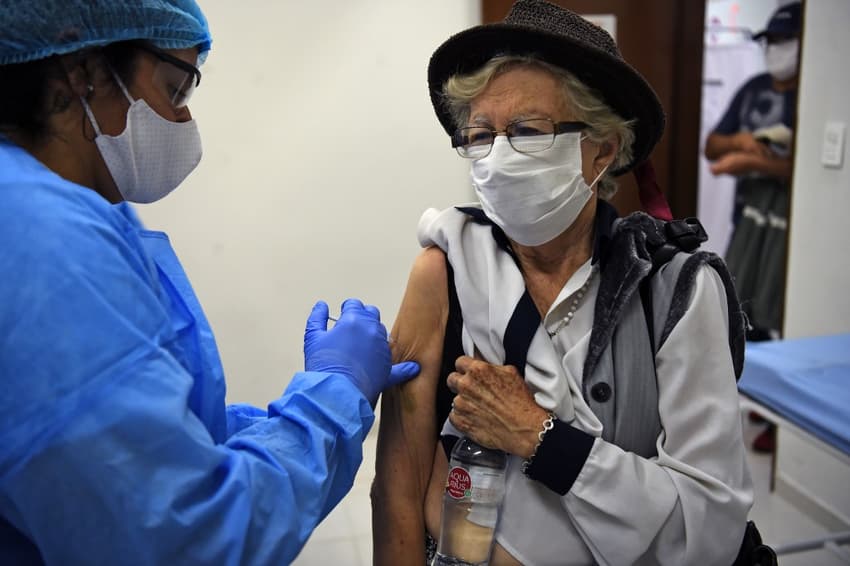Majority of Switzerland’s population 'wants to be vaccinated against Covid-19'

According to a new survey commissioned by Sotomo Research Institute, 63 percent of people in Switzerland say they would like a vaccine against the virus as soon as it is on the market.
The wish to be vaccinated is particularly high among the elderly, as this group is particularly at risk of complications from the coronavirus, the study reports.
Only a quarter of the respondents said they were ‘somewhat opposed’ to a vaccination, while 12 percent said they were ‘hesitant’.
For Claire-Anne Siegrist, director of the vaccination centre of the Geneva University Hospitals (HUG), these figures are encouraging and show the confidence that people in Switzerland have in the medical sector.
"These numbers indicate that there is a large part of the population who know that the day their doctor recommends this vaccine, it will be because it has proven its effectiveness," she told RTS television.
But is it possible or even useful to vaccinate the entire population?
Dominique Sprumont, deputy director of the Neuchâtel Institute of Health Law, said that the epidemics legislation provides for a proportionate and needs-based approach.
Earlier in August, Switzerland secured early access to the Covid-19 vaccine manufactured by the American company Moderna.
The government ordered 4.5 million doses. Since two doses of the vaccine will be needed, this means 2.25 million people, about a fourth of the country’s population, can be vaccinated against Covid-19.
Given the number of doses that will be available in the country once the vaccine is marketed, “it is unrealistic to consider compulsory vaccination for everyone if we do not have enough vaccines”, Sprumont noted.
And on Thursday, Swiss pharmaceuticals giant Roche announced that it joined forces Wednesday with an American biotechnology company, Regeneron, to develop prevention and treatment for Covid-19.
Comments
See Also
The wish to be vaccinated is particularly high among the elderly, as this group is particularly at risk of complications from the coronavirus, the study reports.
Only a quarter of the respondents said they were ‘somewhat opposed’ to a vaccination, while 12 percent said they were ‘hesitant’.
For Claire-Anne Siegrist, director of the vaccination centre of the Geneva University Hospitals (HUG), these figures are encouraging and show the confidence that people in Switzerland have in the medical sector.
"These numbers indicate that there is a large part of the population who know that the day their doctor recommends this vaccine, it will be because it has proven its effectiveness," she told RTS television.
But is it possible or even useful to vaccinate the entire population?
Dominique Sprumont, deputy director of the Neuchâtel Institute of Health Law, said that the epidemics legislation provides for a proportionate and needs-based approach.
Earlier in August, Switzerland secured early access to the Covid-19 vaccine manufactured by the American company Moderna.
The government ordered 4.5 million doses. Since two doses of the vaccine will be needed, this means 2.25 million people, about a fourth of the country’s population, can be vaccinated against Covid-19.
Given the number of doses that will be available in the country once the vaccine is marketed, “it is unrealistic to consider compulsory vaccination for everyone if we do not have enough vaccines”, Sprumont noted.
And on Thursday, Swiss pharmaceuticals giant Roche announced that it joined forces Wednesday with an American biotechnology company, Regeneron, to develop prevention and treatment for Covid-19.
Join the conversation in our comments section below. Share your own views and experience and if you have a question or suggestion for our journalists then email us at [email protected].
Please keep comments civil, constructive and on topic – and make sure to read our terms of use before getting involved.
Please log in here to leave a comment.